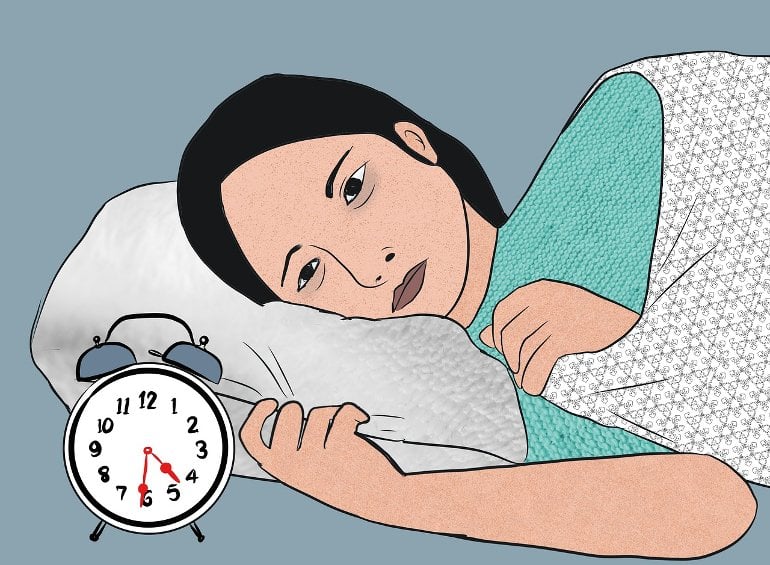Summary: Sleep intervention programs for adults on the autism spectrum show promising results in reducing insomnia and co-occurring anxiety symptoms.
Source: La Trobe University
Researchers from La Trobe University have conducted a world first pilot study investigating a sleep intervention for autistic adults, showing promising evidence at reducing insomnia and co-occurring anxiety symptoms.
Two in every 100 Australians is on the autism spectrum. It is known that autistic people can have trouble falling asleep and may wake for long periods at night, contributing to significant social, psychological and health burdens.
Led by Adjunct Professor Amanda Richdale from La Trobe University, and published in the journal Behavioral and Cognitive Psychotherapy, the study looked at Acceptance and Commitment Therapy adapted for insomnia (ACT-i), and tailored to autistic adults.
Professor Richdale said it is estimated that sleep issues affect up to 80% of autistic people across the lifespan.
“Poor sleep is linked to more behavioral difficulties, poorer mental health, particularly anxiety and depression, and some physical health conditions for autistic people,” Professor Richdale said.
“Poor sleep may be related to the high anxiety and sensory issues often experienced by autistic people. Also, autistic people often experience disrupted sleep-wake circadian rhythms.
“Circadian rhythms are 24-hour rhythms controlled by our genes. Our sleep-wake rhythm is synchronized to 24-hours by sunlight and darkness which affect levels of the hormone melatonin. Melatonin is often given to help autistic people sleep, with mixed results,” Professor Richdale said.
In the study, eight individuals (6 male, 2 female) aged between 18 and 70 years, with a clinical diagnosis of autism spectrum disorder, and mild, moderate/severe or severe insomnia participated in the trial.

Participants were assigned to one of two intervention groups (four per group) within a multiple baseline over time design for group. Participants completed sleep and mental health questionnaires before and after intervention, and at two-month follow-up. They also completed actigraphy 1 week before and after intervention, and a daily sleep diary before intervention till 1 week after intervention, and 1 week at follow-up.
Professor Richdale said there were significant improvements in the group that received the ACT-i therapy, suggesting this may be a way to treat both insomnia and anxiety in people with autism disorder.
“Better sleep can result in improvements in mental health and behavior,” Professor Richdale said.
“Providing intervention supports for common co-occurring sleep issues in autism may provide an effective way to assist autistic children and adults to thrive.
“Despite the clear need for a focus on sleep in autism across the lifespan, good intervention research is still limited in children and is lacking for adults,” Professor Richdale said.
About this ASD and insomnia research news
Author: Press Office
Source: La Trobe University
Contact: Press Office – La Trobe Univesity
Image: The image is in the public domain
Original Research: Closed access.
“ACT-i, an insomnia intervention for autistic adults: a pilot study” by Lauren P. Lawson et al. Behavioural and Cognitive Psychotherapy
Abstract
ACT-i, an insomnia intervention for autistic adults: a pilot study
Background:
Insomnia and disturbed sleep are more common in autistic adults compared with non-autistic adults, contributing to significant social, psychological and health burdens. However, sleep intervention research for autistic adults is lacking.
Aims:
The aim of the study was to implement an acceptance and commitment therapy group insomnia intervention (ACT-i) tailored for autistic adults to examine its impact on insomnia and co-occurring mental health symptoms.
Method:
Eight individuals (6 male, 2 female) aged between 18 and 70 years, with a clinical diagnosis of autism spectrum disorder, and scores ranging from 9 to 26 on the Insomnia Severity Index (ISI) participated in the trial. Participants were assigned to one of two intervention groups (4 per group) within a multiple baseline over time design for group. Participants completed questionnaires pre-intervention, post-intervention, and at 2-month follow-up, actigraphy 1 week prior to intervention and 1 week post-intervention, and a daily sleep diary from baseline to 1 week post-intervention, and 1 week at follow-up.
Results:
At a group level there were significant improvements in ISI (λ2=10.17, p=.006) and HADS-A (anxiety) (λ2=8.40, p=.015) scores across the three time points. Clinically reliable improvement occurred for ISI scores (n=5) and HADS-A scores (n=4) following intervention. Client satisfaction indicated that ACT-i was an acceptable intervention to the participants (median 4 out of 5).
Conclusions:
This pilot study with eight autistic adults indicates that ACT-i is both an efficacious and acceptable intervention for reducing self-reported insomnia and anxiety symptoms in autistic adults.







